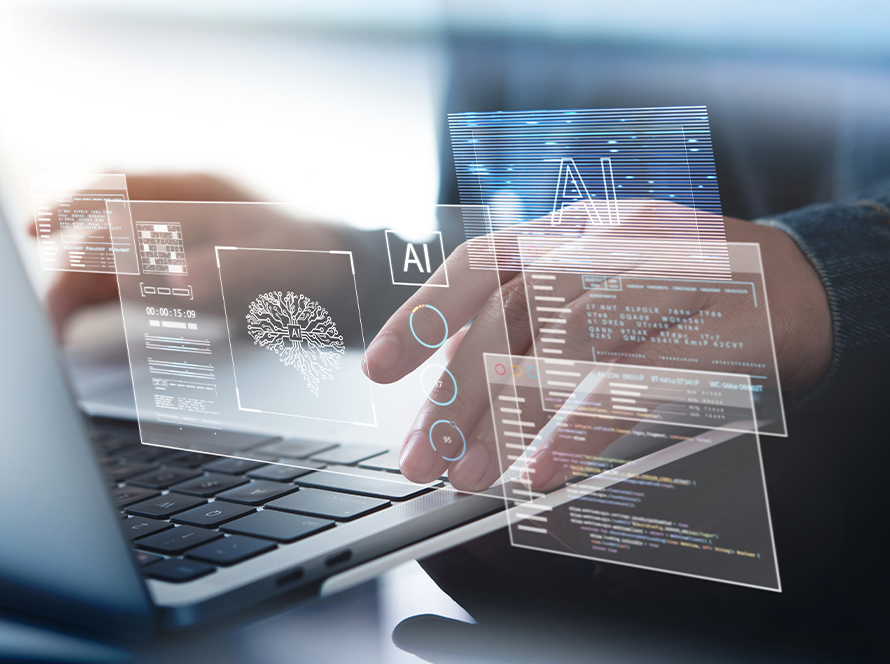“Explore how AI enhances technical onboarding, boosts efficiency, and improves customer service with Sales Closer AI’s innovative solutions.”
In the rapidly evolving landscape of business, the integration of artificial intelligence (AI) into technical onboarding processes is no longer just a trend but a necessity. For HR professionals and business leaders, understanding how AI can transform these processes is crucial. This blog post delves into the myriad ways AI simplifies and enhances technical onboarding, highlighting the innovative solutions provided by Sales Closer AI.
Introduction to AI in Technical Onboarding
Technical onboarding is a critical phase in the employee lifecycle, particularly for roles that require specialized knowledge and skills. Traditionally, this process has been time-consuming and resource-intensive, often involving extensive manual effort. However, with the advent of AI, companies can now automate and optimize these tasks, leading to faster and more efficient onboarding experiences.
AI solutions for technical onboarding leverage advanced algorithms and machine learning to create personalized and scalable onboarding programs. These technologies streamline not only administrative tasks but also offer intelligent insights that enhance the overall onboarding experience for new hires.
How AI Solutions Streamline Onboarding for Technical Roles
AI-driven onboarding processes have several key functionalities that set them apart from traditional methods. One of the most significant advantages is the ability to automate repetitive tasks. By doing so, AI allows HR professionals to focus on more strategic activities, such as engaging with new hires and addressing their specific needs.
For example, Sales Closer AI uses machine learning to analyze a new hire’s background and skill set, automatically tailoring the onboarding content to match their level of expertise. This personalized approach ensures that new employees receive the right information at the right time, significantly reducing the learning curve.
Moreover, AI can automate the scheduling of training sessions, monitor progress, and provide real-time feedback. This continuous monitoring and adjustment ensure that the onboarding process remains dynamic and responsive to the needs of each new hire.
Key Benefits of Implementing AI in Onboarding Processes
1. Reducing Human Error
Human errors in the onboarding process can lead to misunderstandings, incomplete training, and longer adjustment periods. AI minimizes these errors by providing consistent and accurate information. Automated systems ensure that every new hire receives the same high-quality onboarding experience, reducing the risk of critical information being overlooked.
2. Personalizing Training Experiences
AI’s ability to personalize training experiences is a game-changer for technical onboarding. By analyzing data on a new hire’s previous experience and learning preferences, AI can create customized training modules that are both relevant and engaging. This personalized approach not only enhances learning outcomes but also boosts new hire satisfaction and retention.
3. Scaling Onboarding Processes
One of the most challenging aspects of onboarding is scalability. As companies grow, onboarding large numbers of new employees can become overwhelming. AI solutions address this challenge by automating many aspects of the onboarding process, allowing companies to efficiently scale their operations without compromising on quality.
4. Enhancing Workforce Engagement
AI-driven onboarding tools can also improve workforce engagement by providing interactive and engaging training materials. For instance, Sales Closer AI incorporates gamification and interactive quizzes into their onboarding modules, making the learning process more enjoyable and effective.
5. Improving Operational Efficiency
By automating administrative tasks and providing real-time insights, AI helps to streamline the entire onboarding process. This increased efficiency not only reduces the time and resources required for onboarding but also ensures that new hires are productive more quickly.
AI Tools and Technologies for Effective Technical Onboarding
Several AI tools and technologies play a crucial role in enhancing technical onboarding. These include:
1. Chatbots
Chatbots can provide instant support to new hires, answering common questions and guiding them through the onboarding process. This immediate assistance helps to reduce confusion and ensures that new employees feel supported from day one.
2. Machine Learning Algorithms
Machine learning algorithms analyze a new hire’s data to customize their onboarding experience. These algorithms can identify gaps in knowledge and adjust training modules accordingly, ensuring that each employee receives the most relevant and effective training.
3. Natural Language Processing (NLP)
NLP technologies enable AI systems to understand and respond to human language. This capability allows for more intuitive and interactive training experiences, as AI can interpret and respond to new hires’ questions and feedback.
4. Data Analytics
Data analytics tools provide valuable insights into the onboarding process, allowing HR professionals to track progress and identify areas for improvement. By analyzing data on new hires’ performance and engagement, companies can continually refine their onboarding programs.
Case Studies: AI-Driven Onboarding Success with Sales Closer AI
Sales Closer AI has revolutionized the technical onboarding process for several clients. Here are two notable case studies:
Case Study 1: Tech Innovators Inc.
Tech Innovators Inc. faced challenges with their onboarding process due to the highly specialized nature of their technical roles. They implemented Sales Closer AI to streamline and personalize their onboarding program.
Results:
- Time Savings: Reduced onboarding time by 40%
- Increased Engagement: New hires reported a 30% increase in engagement with the onboarding materials
- Improved Retention: Retention rates for new hires improved by 25%
Case Study 2: Future Tech Solutions
Future Tech Solutions needed a scalable solution to handle their rapid growth. By integrating Sales Closer AI, they were able to automate many aspects of their onboarding process, allowing them to efficiently onboard large numbers of new employees.
Results:
- Scalability: Successfully onboarded 200 new hires in three months
- Efficiency: Reduced the administrative burden on HR staff by 50%
- Productivity: New hires became productive two weeks faster than with the previous onboarding process
For more details on how Sales Closer AI can transform your onboarding process, check out our use cases.
Conclusion
Integrating AI into technical onboarding processes offers a multitude of benefits, from reducing human error and personalizing training experiences to scaling operations and enhancing workforce engagement. Sales Closer AI’s innovative solutions demonstrate the transformative impact of AI on technical onboarding, providing companies with the tools they need to efficiently and effectively integrate new technical employees.
As the business landscape continues to evolve, embracing AI-driven onboarding processes will be essential for companies looking to stay competitive and ensure the success of their new hires. By leveraging the power of AI, companies can unlock new levels of efficiency and productivity, ultimately leading to a more engaged and satisfied workforce.
For customized solutions and demos, explore our custom sales demos.
Frequently Asked Questions (FAQ)
1. What is AI in technical onboarding?
AI in technical onboarding refers to the use of artificial intelligence technologies to automate, personalize, and optimize the process of integrating new technical employees into a company. This includes using AI-driven tools to streamline administrative tasks, customize training experiences, and provide real-time support and feedback.
2. How does AI improve the onboarding process?
AI improves the onboarding process by automating repetitive tasks, reducing human error, personalizing training experiences, and providing real-time insights and feedback. These capabilities enhance the overall efficiency and effectiveness of the onboarding process, leading to faster and more successful integration of new hires.
3. What are the key benefits of using AI for technical onboarding?
The key benefits of using AI for technical onboarding include reducing human error, personalizing training experiences, scaling onboarding processes, enhancing workforce engagement, and improving operational efficiency. AI-driven onboarding tools ensure that new hires receive consistent, accurate, and engaging training. Leading to better learning outcomes and higher satisfaction.
4. What AI tools are commonly used in technical onboarding?
Common AI tools used in technical onboarding include chatbots, machine learning algorithms, natural language processing (NLP) technologies, and data analytics tools. These technologies automate and enhance various aspects of the onboarding process, from providing instant support to customizing training modules and analyzing performance data.
5. How can Sales Closer AI help my company with technical onboarding?
Sales Closer AI offers innovative AI-driven solutions designed to streamline and enhance the technical onboarding process. By automating administrative tasks, personalizing training experiences, and providing real-time insights, Sales Closer AI helps companies improve the efficiency and effectiveness of their onboarding programs. Leading to faster integration and higher retention of new hires.
For detailed information on our pricing, visit Sales Closer AI Pricing.


